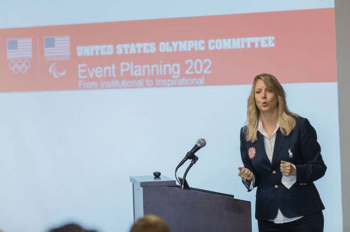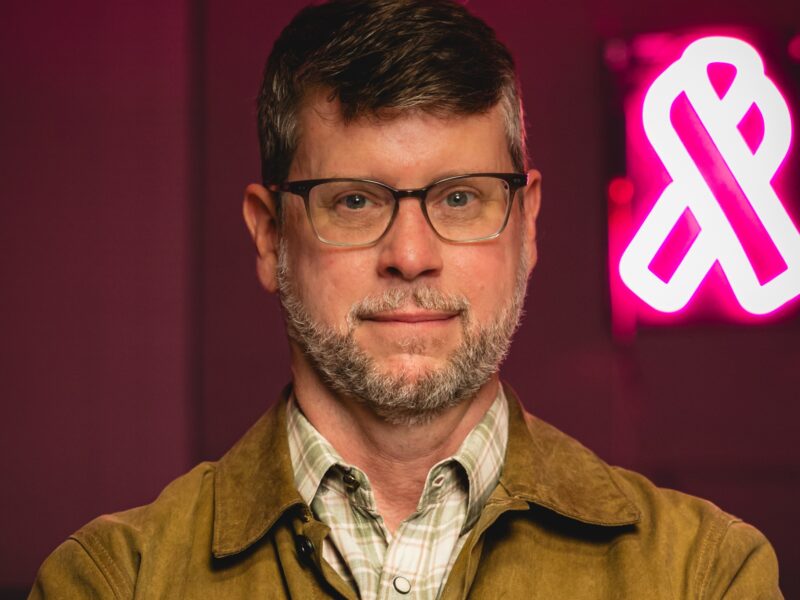Learning To Adapt Leads To Gold, U.S. Olympic Planner Tells Texas A&M Crowd

The director of event planning for the United States Olympic Committee (USOC) spoke to a Texas A&M University group of her peers Tuesday and said that her job is incredibly busy, and if she had one piece of advice it would be this: have a Plan B.
Lisa Kangley, director of meetings and events for the USOC, told listeners that there are not many days off in a job like hers, but she wouldn’t have it any other way. And when it comes to planning any event, she has learned that the key word is “adapt.”
“You have to be able to adapt, because in this line of work, things tend to change a lot, and often they change quickly,” she said.
“By this time the year is over, we will have had 106 events, both in the U.S. and all over the world, and the attendance is from a few hundred to tens of thousands. There are dozens of details for every event, and you know going in that there will be problems or situations that you had not planned on. So be able to adapt.”
Kangley, a native Californian who graduated with a business degree from Loyola Marymount University, has been a USOC events planner since 2010. She previously worked for Donald Trump’s National Golf Club in Washington, D.C., and the Kennedy Center and Union Station, both located in the D.C.-metro area.
She said her 25 years of experience in event planning has told her “to be ready – the opportunity you think you might have had can be gone quickly.”
She has put that theory to the test with the USOC, which she says does much more than just Olympics, both summer and winter games. There are also the Pan American Games, the Paralympic Games, held internationally for athletes with disabilities, and other events and contests associated with the USOC, such as the Olympic Trials, which are a yearly event.
She worked the London Olympics in 2012 and the Rio Games this past summer and said that dealing with foreign businesses around the world can be a huge challenge.
“You have to conduct business according to their laws, not yours,” she notes, “so things like catering and food service, media outlets, arranging transportation and security, and even constructing new rooms and buildings for many events pose many problems and challenges. But you learn to adapt and go forward, and to always have a good translator at your side.”
Kangley noted that once a site is selected for an event in a foreign country, a “RFP (request for proposal for bids on a particular project) has to go out at once. These can be especially difficult to do, and we have to get our legal team involved, and we’ve learned that it helps a lot to deal with people and companies you may have worked with in the past.”
When asked if she ever takes any time off, Kangley added, “A while back, I went two and half years without a day off. I’ve learned not to do that any more.”
Media contact: Keith Randall, Texas A&M News & Information Services.





